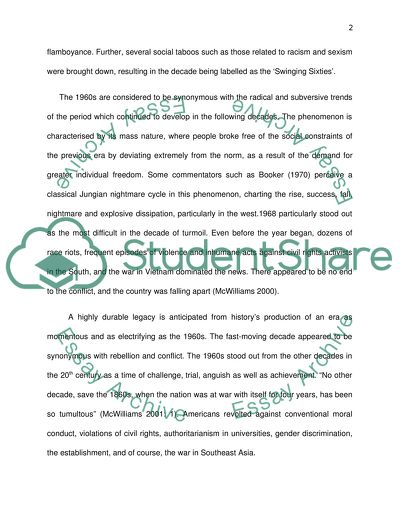Cite this document
(“The 1960s Cultural Revolution: Was it a Triumph for Individualism Essay”, n.d.)
Retrieved de https://studentshare.org/environmental-studies/1423545-the-1960s-cultural-revolution-was-it-a-triumph-for-individualism
Retrieved de https://studentshare.org/environmental-studies/1423545-the-1960s-cultural-revolution-was-it-a-triumph-for-individualism
(The 1960s Cultural Revolution: Was It a Triumph for Individualism Essay)
https://studentshare.org/environmental-studies/1423545-the-1960s-cultural-revolution-was-it-a-triumph-for-individualism.
https://studentshare.org/environmental-studies/1423545-the-1960s-cultural-revolution-was-it-a-triumph-for-individualism.
“The 1960s Cultural Revolution: Was It a Triumph for Individualism Essay”, n.d. https://studentshare.org/environmental-studies/1423545-the-1960s-cultural-revolution-was-it-a-triumph-for-individualism.


